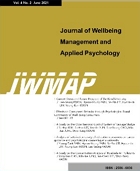- Log In/Sign Up
- E-ISSN2586-6036
- KCI
 E-ISSN : 2586-6036
E-ISSN : 2586-6036
Shuang ZHANG
Ya-Hao LI
Abstract
Purpose: As an important provision to protect the rights and interests of low-income groups, it is worth studying whether the minimum wage policy can improve the quality of life for people. Research design, data and methodology: Using data from the 2015 and 2017 China General Social Survey (CGSS), this paper employs the logit model to estimate the probability of an individual's annual income being higher than the per capita disposable income of their province. It also utilizes the DID model to analyze the impact of minimum wage increases on individuals' annual incomes. Results: The analysis reveals that an overall increase in the minimum wage raises the probability of an individual's annual income exceeding the per capita disposable income by 3%. Among them, the probability increased by 2.2% for males and by 3.2% for females. Furthermore, the impact of the minimum wage on annual income varies depending on the individual's income level. Notably, the most positive and significant impact is observed for individuals whose income level is close to the minimum wage standard. Conclusions: This provides evidence that the increase in the minimum wage has effectively improved the quality of life for the population.
- keywords
- Minimum Wage Policy, Personal Income, China
- Downloaded
- Viewed
- 0KCI Citations
- 0WOS Citations













